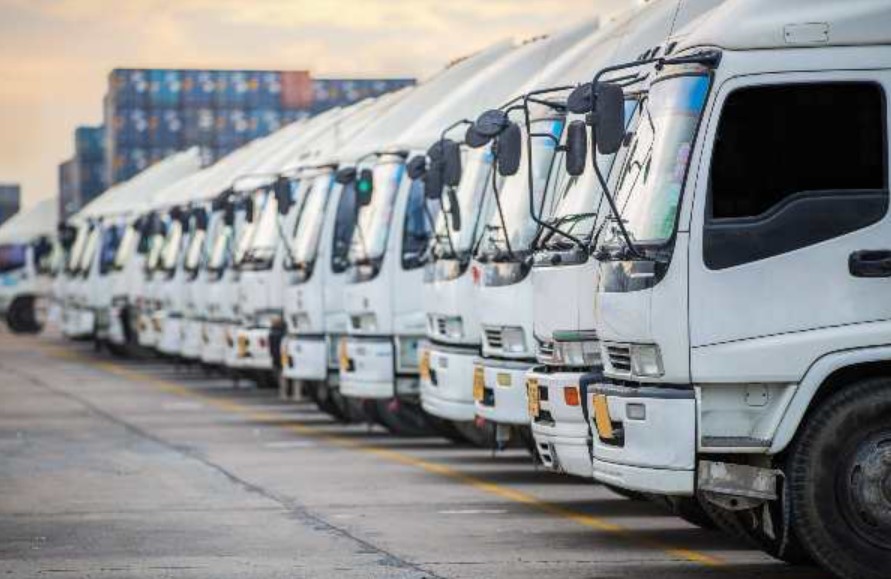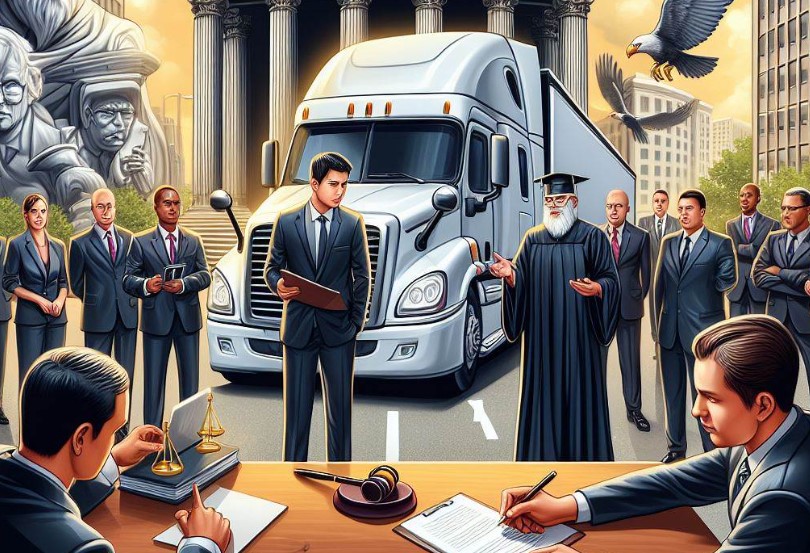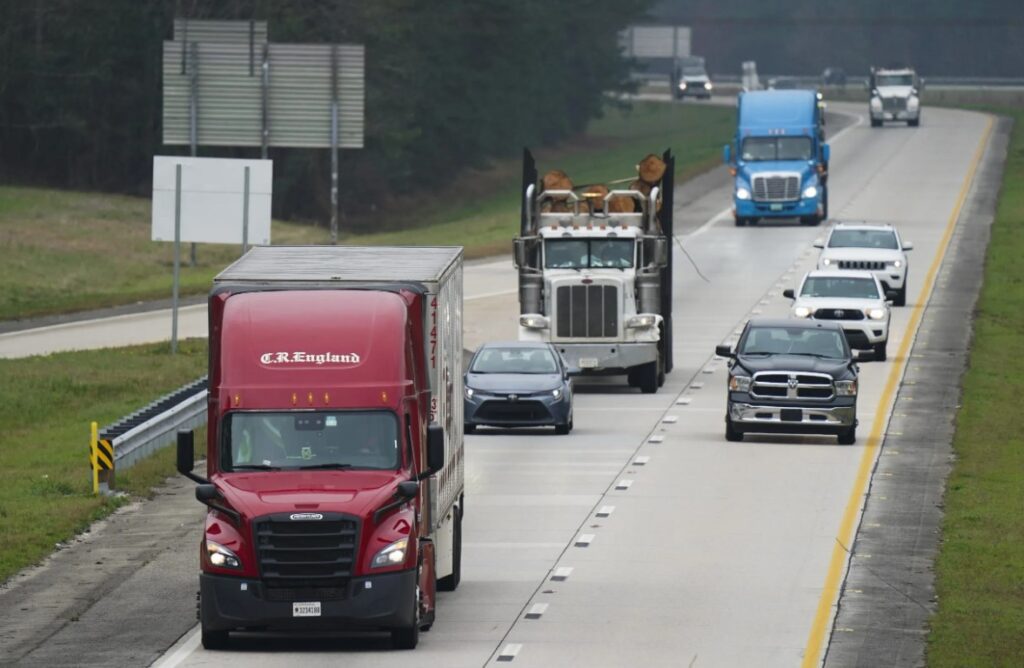Can You Sue A Trucking Company? Quick Answer
This article will explain Can You Sue A Trucking Company? This question often arises in the aftermath of a truck-related accident. Understanding your legal rights is crucial in these scenarios. The simple answer is yes, you can sue a trucking company under certain circumstances. This article delves into the nuances of legal actions against trucking companies, exploring various aspects such as liability, common causes for lawsuits, and the legal process involved.
Key Takeaways
- Can You Sue A Trucking Company? Yes, under certain conditions.
- Liability: Often shared between the driver and the company.
- Common Causes: Negligence, safety violations, and overworked drivers.
- Legal Process: Involves proving negligence and damages.
Can You Sue A Trucking Company?
Yes, you can sue a trucking company if you’re involved in an accident caused by their negligence or violation of safety regulations. The company can be held liable for the actions of their employees, maintenance of their vehicles, and adherence to industry standards.

Liability in Trucking Accidents
Liability in trucking accidents can be complex. It often involves multiple parties including the driver, the trucking company, and sometimes third-party contractors. Understanding who is legally responsible is crucial in a lawsuit.
Driver vs Company Liability
The driver may be directly responsible for the accident due to factors like reckless driving or DUI. However, the company can also be held liable if it neglects proper hiring practices, training, or vehicle maintenance.
Common Causes for Suing a Trucking Company
There are several common causes for suing a trucking company. These include, but are not limited to, driver negligence, violation of safety regulations, and improper maintenance of vehicles.
Driver Negligence
Driver negligence, such as distracted driving, speeding, or driving under the influence, is a common ground for lawsuits. Victims can claim compensation for injuries and damages caused by such negligence.
Overworked and Fatigued Drivers
Trucking companies pushing drivers to work beyond legal hours can lead to fatigue-related accidents. This negligence makes the company liable for any resulting damages.
The Legal Process of Suing a Trucking Company
Suing a trucking company involves several steps. It starts with gathering evidence to prove the company’s negligence and ends with a court trial or settlement.

Proving Negligence and Damages
To sue a trucking company, you must prove their negligence directly caused the accident. This involves collecting evidence like driver logs, vehicle maintenance records, and witness statements.
Gathering Evidence
Collecting evidence is vital. This includes accident reports, CCTV footage, and black box data from the truck. This evidence helps establish the fault of the trucking company.
Compensation and Damages in Trucking Lawsuits
Victims of trucking accidents can seek compensation for various damages. This includes medical expenses, lost wages, and emotional distress.
Types of Damages
Damages in trucking lawsuits are generally categorized into economic (like medical bills and lost wages) and non-economic damages (such as pain and suffering).
Calculating Compensation
The compensation amount depends on the severity of the injuries and the impact on the victim’s life. An attorney can help in accurately calculating these damages.
Safety Regulations and Compliance
Trucking companies are bound by federal and state safety regulations. Non-compliance with these rules can be grounds for a lawsuit.
Role of Safety Regulations
Safety regulations are designed to prevent accidents. Violations of these regulations, such as overloading trucks or skipping mandatory breaks, can lead to accidents and legal action.
Compliance Audits and Violations
Compliance audits are conducted to ensure trucking companies adhere to safety regulations. Violations found during these audits can be used as evidence in a lawsuit.
Can I Sue A Trucking Company For An Accident Caused By Their Driver?
Yes, you can sue a trucking company for an accident caused by their driver. In legal terms, this falls under the doctrine of “respondeat superior,” which holds an employer responsible for the actions of its employees performed within the course of their employment.

If the truck driver was acting within the scope of their employment and negligence is proven, the trucking company can be held liable.
This liability covers various scenarios, such as the driver operating the vehicle recklessly, driving under the influence, or violating traffic laws. The key is to establish that the driver’s negligence directly caused the accident and your resulting damages.
When Can You Sue A Trucking Company?
You can sue a trucking company when their negligence directly leads to an accident. This includes situations where the company failed to properly maintain its fleet, did not adhere to safety regulations, or inadequately trained its drivers.

It’s not just limited to driver error. If the trucking company violated industry standards, like overloading trucks or not conducting regular safety inspections, these can also be grounds for a lawsuit.
The company’s failure to comply with federal and state regulations, such as hours of service rules for drivers, further strengthens your case. Essentially, if the trucking company’s actions or inactions contributed to the accident, they can be sued.
Can I File A Lawsuit Against A Trucking Company?
Yes, you can file a lawsuit against a trucking company if you’re involved in an accident where their driver or operational practices are at fault.
The process involves proving that the company’s negligence led to the accident and your injuries. This can be achieved by demonstrating that the trucking company failed in areas like driver training, vehicle maintenance, or compliance with safety regulations.
When filing a lawsuit, it’s crucial to gather comprehensive evidence, including accident reports, witness statements, and any available footage. It’s also important to file the lawsuit within the statute of limitations, which varies by state, to ensure your claim is valid.
Conclusion
Suing a trucking company requires a thorough understanding of legal procedures and evidence gathering. So, Can you sue a trucking company? Yes, particularly when negligence or regulatory violations are involved.
Victims have the right to seek compensation for their losses, and trucking companies must be held accountable for their actions and compliance with safety regulations. The process may seem daunting, but with the right legal guidance, it can lead to rightful compensation and justice.
Frequently Asked Questions
What role do federal regulations play in trucking lawsuits?
Federal regulations set standards for trucking operations, including driver hours, vehicle maintenance, and load limits. Violations of these regulations can be used as evidence of negligence in a lawsuit.
Can a trucking company be sued for punitive damages?
Yes, punitive damages can be sought if the trucking company’s actions were especially reckless or negligent, such as knowingly allowing overworked drivers or maintaining unsafe vehicles.
How long does a lawsuit against a trucking company typically take?
The duration varies widely depending on the case’s complexity, the parties involved, and whether it goes to trial. It can range from several months to a few years.
What if the truck driver was an independent contractor?
Even if the driver was an independent contractor, the trucking company might still be liable, especially if they had control over the driver’s work or if the accident was related to a problem with the truck that should have been addressed by the company.

Welcome to the exhilarating world of Matt Rex, a professional car racer turned renowned vehicle enthusiast. Immerse yourself in his captivating blog as he shares heart-pounding adventures, expert reviews, and valuable insights on cars, trucks, jets, and more. Fuel your passion for speed and discover the beauty of vehicles through Matt’s engaging stories and meticulous expertise. Join the ever-growing community of enthusiasts who find inspiration and expert advice in Matt Rex’s blog—a digital hub where the thrill of speed meets the pursuit of knowledge.





![Nissan Connect Keeps Restarting [How To Fix This?]](https://www.turbochaos.com/wp-content/uploads/2024/01/Nissan-Connect-Keeps-Restarting-768x708.jpg)

